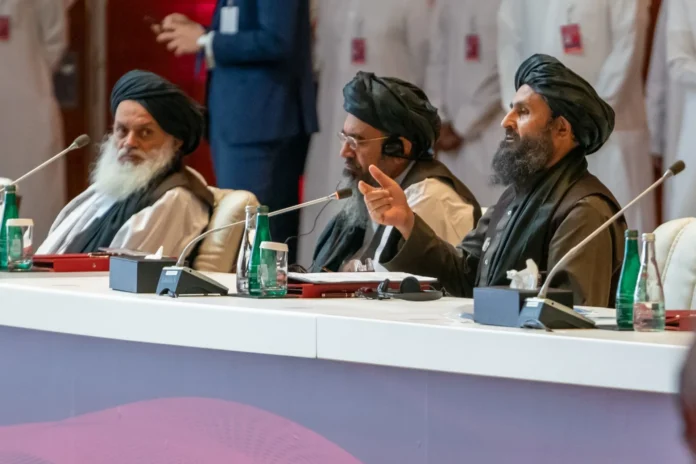Author: Kamran Bokhari
Affiliation: Center for Global Policy
Organization/Publisher: Center for Global Policy
Date/Place: September 23, 2020/USA
Type of Literature: Analysis
Word Count: 2000
Link: https://cgpolicy.org/articles/the-taliban-deal-u-s-jihadist-negotiations/
Keywords: Afghanistan, Taliban, Kabul administration, NATO, US, War-torn country, conflict
Brief:
The author argues that the February 29th, 2020 Afghanistan peace deal is the “first-ever substantive peace negotiation effort between the United States and a jihadist movement” the Taliban, which calls itself the Islamic Emirate of Afghanistan. With fingers crossed, the author prophesies that any future government in the war-torn country with the Taliban at the helm will be a “Sunni Afghan version of the Islamic Republic of Iran.” He stresses that if the intra-Afghan negotiations actually succeed, it will be a model for negotiating with jihadist nationalists in the future. Warrying parties of Afghanistan are holding a wide range of discussions for reconciliation in Qatar under the US-Afghan Taliban peace deal. This analytical paper also points to imminent regime change in the country. The current administration in Kabul—a weak and divided one—was installed by Western powers in 2001 after the so-called Bonn agreement under which the US and its allies occupied the country and forcibly removed the Taliban. “Afghanistan is once again in the throes of regime change, this time via negotiations,” the author insists. Referring to three diverging statements made at the opening of the intra-Afghan dialogues in Doha, the author argues that the Taliban will have to rethink its system of governance. The US has clarified that it will not impose “its democracy” on the country anymore. The author foresees a “hybrid of medieval Sunni ideal and a modern, Western-style state” coming up in Afghanistan. After 19 years of war, spending over $1 trillion, and the loss of tens of thousands of civilians and combatants, the Afghan peace deal and ongoing dialogue is a political learning process for all sides involved in the conflict. According to the author, the last time Washington was so close to participating in negotiations was in 2007 talks in Iraq to weaken Sunni tribal support for al Qaeda. “The Taliban talks will likely serve as a model for other areas requiring political settlements, such as Syria, Iraq, Libya, and Yemen.”
By: Riyaz Ul Khaliq, CIGA Non-Resident Research Associate




